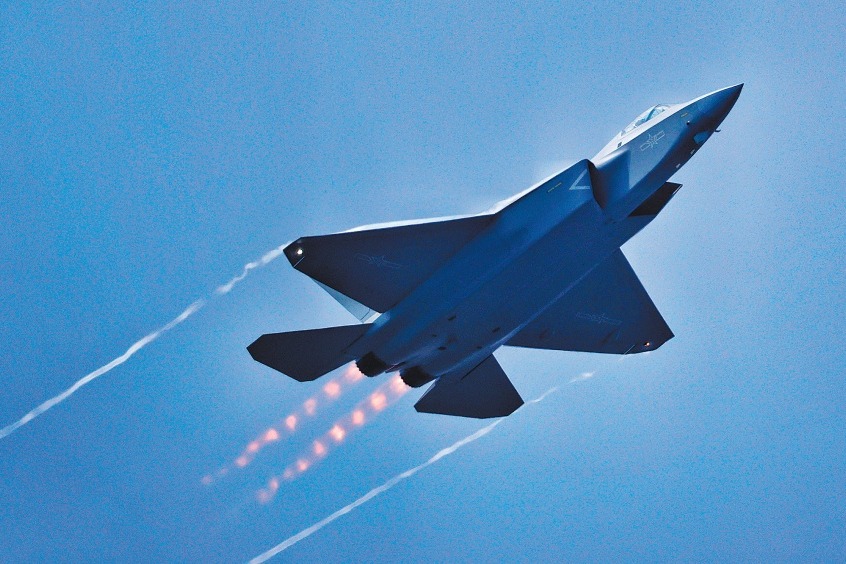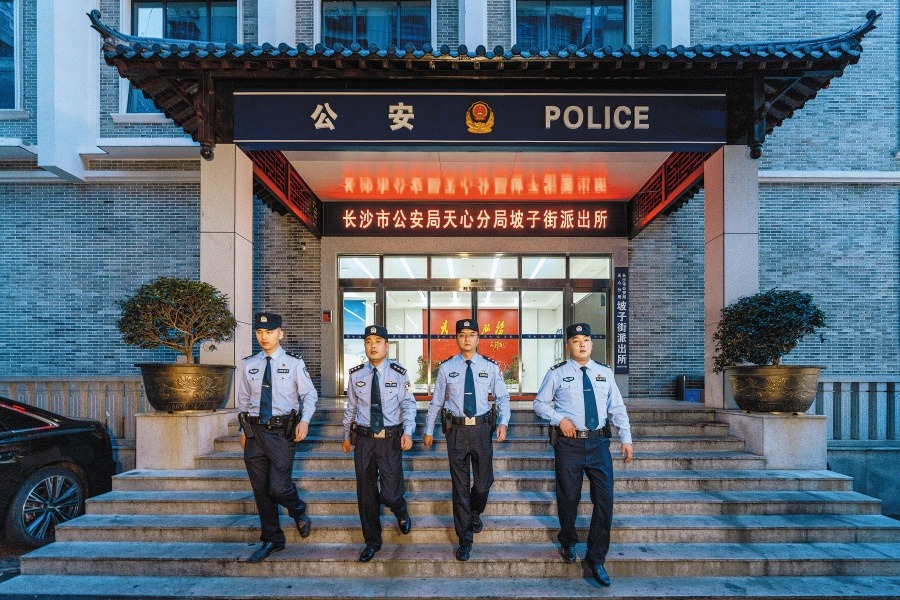Train to Beijing's new airport passes trial run
By Xie Chuanjiao in Qingdao, Shandong | China Daily | Updated: 2019-06-21 09:18

A new type of subway train, which is expected to run between downtown Beijing and the Daxing international airport that is under construction south of the city, will offer passengers a unique experience thanks to cutting-edge technology and design.
The train launched its first trial run on Saturday in Beijing, its developer CRRC Qingdao Sifang Co said on Monday.
The trains are named after "Baijing", or "White whale", and each features the world's most advanced fully-automatic driving system that not only allows driverless operation but enables the vehicle to wake up, self-check and go dormant automatically, according to Liu Jiangtao, a senior designer of CRRC Qingdao.
"The system liberates human labor from routines such as daily examinations ... and it also enables the trains to establish arrival times more precisely," Liu added.
Liu said that each train's structure is made mainly of extruded aluminum with several hollow cavities. This means the train is resistant to air loss, so passengers feel less vibration and hear less noise.
Each train is designed to run at a speed of 160 kilometers per hour, and it will take about 20 minutes to get from Caoqiao, one of the subway stations in southern Beijing's Fengtai district, to the new airport, covering 41.3 kilometers.
The Beijing Daxing International Airport, at the junction of Beijing's Daxing district and Langfang, a city in neighboring Hebei province, is designed to take pressure off the overcrowded Beijing Capital International Airport in the northeastern suburbs.
The trains, as well as Beijing's airport subway line, are expected to go into formal operation with the new airport in September.
Liu said the trains' interior design follows aviation standards and is divided into a business-class carriage, six regular carriages and one for luggage, with a maximum passenger capacity of 448.
Passengers will feel more comfortable as the size and spacing of seats are wider than in China's Fuxing bullet trains, Liu said.
There are also USB charging ports at the seats and luggage racks between carriages.
Liu said that the trains are part of a series designed for intercity and metropolitan transportation by CRRC Qingdao, with speeds ranging from 100 to 200 kilometers per hour.
This series of trains will also run on several other lines in China that connect a major city to suburban areas or neighboring cities, according to Liu.
























